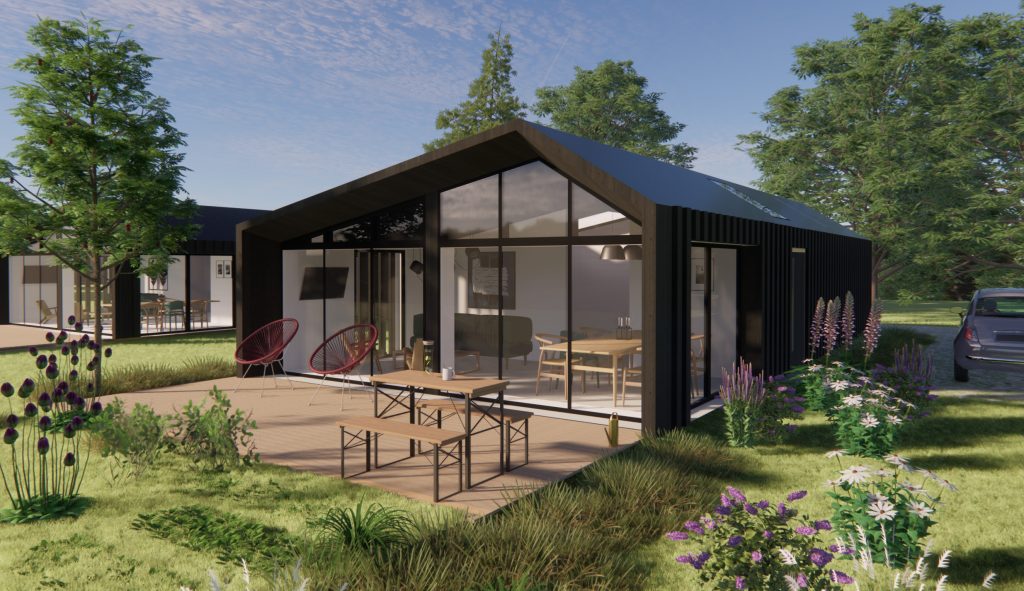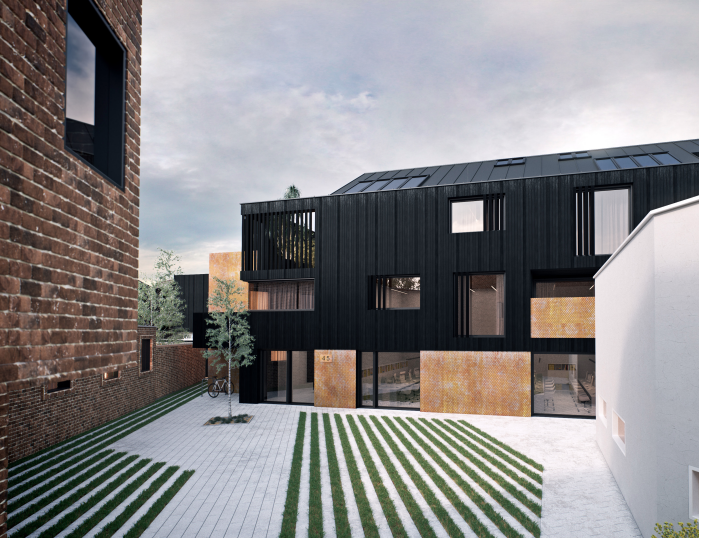
What Are Modular Data Centres?
In recent years, the merging of the technology and construction industries has paved the way for new methods of construction.
Here at Studio Anyo, we are proud to be at the forefront of these modern methods of construction (MMC), and in this blog, we’re going to take a deeper look into modular data centres.
When you think of a data centre, you probably imagine a traditional, monolithic structure that is tough to build, and even tougher to move.
Modular data centres offer a flexible approach to this conundrum, and thanks to the MMC approaches we often discuss in our blog, their availability and popularity are becoming much more widespread.
Understanding Modular Data Centres
To really get to grips with what a modular data centre is, we must first start with the data centre itself.
A data centre is a facility that houses computer systems and associated components, such as telecommunications and storage systems.
It is a critical asset for companies and organisations of all sizes, providing the infrastructure for IT operations and equipment.
Data centres are designed to store, manage, and disseminate data and applications that enable businesses and other entities to operate efficiently.
Core Components of a Data Centre
- Servers: These are the most crucial components, performing data processing and storage, application hosting, and running the services and applications that support business operations.
- Storage Systems: Data centres contain systems for storing data, such as hard drives, solid-state drives, and storage area networks (SANs), which ensure that data is accessible and secure.
- Networking Equipment: This includes routers, switches, and firewalls, which manage data traffic and protect data integrity by controlling access to the network.
- Power Supplies: Data centres require uninterrupted power supplies (UPS) and backup generators to maintain operations during power outages.
- Cooling Systems: Given the heat generated by the continuous operation of servers and other equipment, efficient cooling systems are essential to maintain optimal operating temperatures.
- Security Systems: Physical and cybersecurity measures are critical to protect the data centre’s assets from unauthorised access and cyber threats.
What is a Modular Data Centre?
So, now you have a firm grasp on what a data centre does, and what it is comprised of, where does the modular construction aspect come into things?
Well, imagine constructing a building block by block, with each piece designed to fit perfectly, offering the flexibility to add or remove sections as your needs change.
This is the essence of modular data centres.
Manufactured in factory settings and shipped to their final location, these prefabricated units come equipped with all the necessary components of a traditional data centre, including all of the components listed above.
The beauty of this model lies in its scalability, allowing organisations to start small and expand their data processing capabilities as their demands grow, all without the extensive planning and construction time associated with traditional data centres.

The Cornerstones of Modular Data Centre Design
- Prefabrication: Modular data centres are built offsite and delivered ready to plug and play, significantly reducing deployment time.
- Scalability: They offer the ability to scale up or down based on real-time needs, providing a cost-effective solution for growth.
- Energy Efficiency: With advanced cooling and energy-efficient technologies, modular data centres can lead to lower operating costs and a reduced environmental impact.
- Flexibility and Portability: These data centres can be relocated, offering an adaptable solution to meet changing business landscapes or temporary needs.
The Construction Industry’s Game Changer
For the construction sector, the advent of modular data centres is nothing short of revolutionary.
These agile structures enable rapid deployment of IT infrastructure, essential for the digitisation of construction processes, from Building Information Modeling (BIM) to remote project management and beyond.
Particularly in remote or temporary construction sites, modular data centres provide critical IT support without the hefty price tag or lengthy setup times of traditional data centres.
As the construction industry moves forward in the equipment and methods it uses to operate, it leans further into a digital approach. Modular data centres are the ideal solution for companies looking to create a hub to power their business without constructing a rigid and stationary structure, which is not only great for them but also for the environment.
Once the work is done, if the company moves on, the building can be removed easily, allowing what was there before the building to flourish.
Empowering Digital Transformation
As construction projects increasingly rely on digital tools and analytics, the need for robust IT infrastructure has never been more critical.
Modular data centres meet this need head-on, offering the backbone for advanced technologies that drive efficiency, accuracy, and innovation in construction projects.
Whether it’s managing complex simulations, enhancing project communication, or leveraging real-time data, these modern data centres ensure that construction professionals have the computing power they need, when and where they need it.

Looking Ahead
The shift towards modular data centres signifies a broader movement towards more sustainable, efficient, and adaptable IT solutions across industries.
In the realm of construction, they stand as a testament to the power of innovation, offering a pathway to embrace the digital age without the traditional barriers of cost, time, and rigidity.
As we continue to push the boundaries of what’s possible, modular data centres will undoubtedly play a pivotal role in shaping the future of construction and beyond.
Studio Anyo
Modular data centres are not just a technological advancement; they are a strategic tool that can help the construction industry leapfrog into the future.
By embracing these flexible, efficient, and scalable solutions, construction professionals can ensure they are well-equipped to meet the challenges of tomorrow, today.
Here at Studio Anyo, we are proud to work on many great projects, and we’ve seen first-hand how data centres can be extremely powerful.
Want to know more? Or if you would like to discuss a project with us, then get in touch today.


